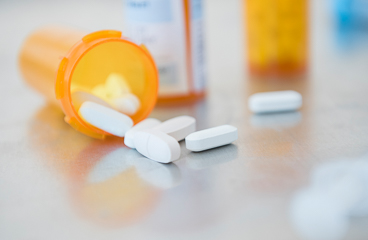
Overview
You have had treatment to help your body recover from taking too much of an opioid. You are getting better, but you may not feel well for a while. It takes time for the opioids to leave your body. How long it takes to feel better depends on which drug you took and how much you took of it.
You may have withdrawal symptoms when you stop using opioids or use them less. These symptoms can include nausea, sweating, chills, diarrhea, stomach cramps, and muscle aches. You may feel very ill, but you probably aren't in medical danger.
Opioids include drugs such as heroin and medicines that doctors prescribe to treat pain. These are medicines such as oxycodone, fentanyl, and morphine. They are sometimes sold and used illegally.
Taking too much of an opioid can be dangerous. It may cause trouble breathing, low blood pressure, and low heart rate. It can also lead to a coma or death.
Follow-up care is a key part of your treatment and safety. Be sure to make and go to all appointments, and call your doctor if you are having problems. It's also a good idea to know your test results and keep a list of the medicines you take.
How can you care for yourself at home?
- Take your medicines as prescribed. Do not mix alcohol with medicines that make you tired, like sleeping pills or muscle relaxers.
- If you have withdrawal symptoms such as nausea, sweating, chills, diarrhea, stomach cramps, and muscle aches:
- Get plenty of rest.
- Drink plenty of fluids.
- Stay active, but don't overdo it.
- Eat a variety of healthy foods.
- Sip liquids if you have a sore throat. You may have had a tube in your throat to help you breathe.
- Do not drive if you feel sleepy or groggy while you recover from an overdose.
- Get help to stop using opioids. Talk to your doctor about substance use treatment programs.
- Talk to your doctor or pharmacist about having a naloxone rescue kit on hand.
When should you call for help?
Call 911 anytime you think you may need emergency care. For example, call if:
- You feel you cannot stop from hurting yourself or someone else.
Where to get help 24 hours a day, 7 days a week
If you or someone you know talks about suicide, self-harm, a mental health crisis, a substance use crisis, or any other kind of emotional distress, get help right away. You can:
- Call the Suicide and Crisis Lifeline at 988.
- Call 1-800-273-TALK (1-800-273-8255).
- Text HOME to 741741 to access the Crisis Text Line.
Consider saving these numbers in your phone.
Go to 988lifeline.org for more information or to chat online.
Call your doctor now or seek immediate medical care if:
- You have new or worse withdrawal symptoms, such as:
- Stomach cramps.
- Vomiting.
- Diarrhea.
- Muscle aches.
- Sweating.
Watch closely for changes in your health, and be sure to contact your doctor if:
- You do not get better as expected.
Current as of: December 9, 2025
Author: Ignite Healthwise, LLC Staff
Clinical Review Board
All Ignite Healthwise, LLC education is reviewed by a team that includes physicians, nurses, advanced practitioners, registered dieticians, and other healthcare professionals.

